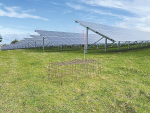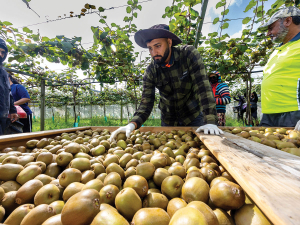The Government is pushing ahead with its election commitment to take agriculture out of the New Zealand Emissions Trading Scheme (ETS).
It is also establishing a new Pastoral Sector Group to constructively tackle biogenic methane.
The announcement on the eve of the National Fieldays will please farmers.
Agriculture Minister Todd McClay says New Zealand farmers are some of the world’s most carbon-efficient food producers.
“The Government is committed to meeting our climate change obligations without shutting down Kiwi farms. It doesn’t make sense to send jobs and production overseas, while less carbon-efficient countries produce the food the world needs.
“That is why we are focused on finding practical tools and technology for our farmers to reduce their emissions in a way that won’t reduce production or exports.’
The Government will introduce legislation later this month amending the Climate Change Response Act 2002 (the CCRA) to ensure agriculture does not enter the NZ ETS.
The amendment to the CCRA will remove agriculture, animal processors and fertiliser companies from the ETS before 1 January 2025. For these organisations, their emissions associated with non-farm activities will continue to be covered by the NZ ETS.
Meanwhile an industry partnership to reduce agricultural greenhouse gas emissions and build the sector's resilience to climate change- He Waka Eke Noa is to be disbanded.
McClay says it is now clear that Labour’s He Waka Eke Noa process has failed and is no longer tenable.
“The primary sector worked collaboratively for years, however Labour rejected many of its proposals compromising consensus, relationships, and confidence across rural New Zealand. To restore confidence, Cabinet has decided to formally disestablish He Waka Eke Noa from today.
“It’s time for a fresh start on how we engage with farmers and processors to work on biogenic methane.”
To do this, the Government will engage directly with levy bodies and sector organisations that represent the pastoral sector - DairyNZ, Beef + Lamb New Zealand, Deer Industry New Zealand, Federated Farmers, Dairy Companies Association of New Zealand, and the Meat Industry Association. Terms of reference for the Pasture Sector Group will be developed and agreed with the group,” McClay says.


















